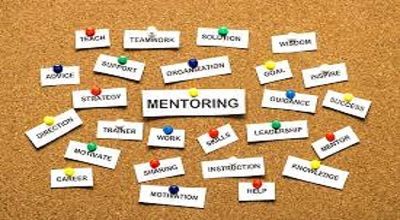Mentoring in Education
Mentoring in education is a process where an experienced and knowledgeable individual provides guidance, support, and advice to a less experienced person, typically a student or a new educator. The goal of mentoring is to facilitate the personal and professional development of the mentee, helping them navigate the challenges of their educational journey and career.
Here are some key aspects of mentoring in education
Individualized Support
Mentoring involves a one-on-one relationship between the mentor and the mentee. This individualized support allows for personalized guidance based on the mentee’s needs, goals, and challenges.
Knowledge Transfer
Mentors share their knowledge, expertise, and experiences with the mentee. This can include insights into effective teaching strategies, classroom management, curriculum development, and professional development opportunities.
Professional Development
Mentoring contributes to the professional development of the mentee by helping them set and achieve goals, providing constructive feedback, and encouraging reflective practice. This can enhance the mentee’s teaching skills, confidence, and overall effectiveness.
Career Guidance
Mentors often provide valuable career guidance, helping mentees explore different paths within the field of education, understand the requirements for advancement, and develop a long-term career plan.
Emotional Support
Education can be challenging, and mentors play a crucial role in providing emotional support. They offer encouragement, a listening ear, and advice on managing stress or overcoming obstacles.
Networking Opportunities
Mentors can introduce mentees to professional networks and communities, helping them establish connections within the education sector. Networking can open doors to new opportunities, collaborations, and resources.
Role Modeling
Mentors serve as positive role models, demonstrating professionalism, dedication, and a commitment to lifelong learning. Observing these qualities can inspire mentees to develop similar attributes in their own careers.
Feedback and Reflection
Regular feedback sessions allow mentees to reflect on their teaching practices, identify areas for improvement, and celebrate successes. Constructive feedback from mentors helps mentees grow and refine their skills.
Cultural Competence
In diverse educational settings, mentors can assist mentees in developing cultural competence. This involves understanding and respecting the cultural backgrounds of students and creating inclusive learning environments.
Continuity and Long-Term Relationships
Effective mentoring often involves sustained, long-term relationships. Continuity allows mentors to witness the progress of their mentees over time and provides ongoing support throughout various stages of the mentee’s career.
Summary
Mentoring in education is a reciprocal process where both the mentor and mentee can benefit. While the mentee gains valuable insights and support, mentors also find fulfillment in contributing to the growth and success of their mentees.
